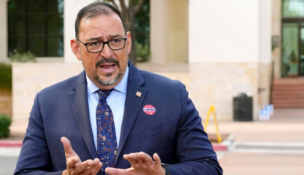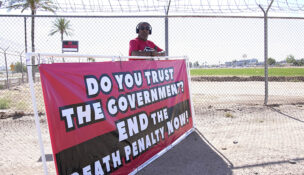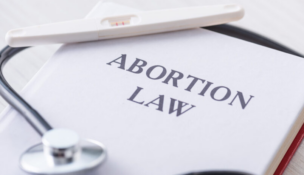Republican attorney says border measure is ‘holistic’ approach
Howard Fischer, Capitol Media Services//July 1, 2024//[read_meter]
Republican attorney says border measure is ‘holistic’ approach
Howard Fischer, Capitol Media Services//July 1, 2024//[read_meter]
Republican legislative leaders are asking a judge to allow voters to decide whether they want to adopt a multi-pronged measure billed as protecting border security.
In court filings, Kory Langhofer, one of their attorneys, said challengers are off-base when they contend that what is in what GOP lawmakers labeled the “Secure the Border Act” violates constitutional requirements that ballot measures deal with only a single subject.
Langhofer acknowledged that there are several different provisions in the measure, approved on a party-line vote as HCR 2060. They include:
- Making it a crime for those not here legally to enter Arizona from Mexico other than at a port of entry;
- – Increasing penalties for using false documents to obtain public benefits or evade laws about hiring undocumented individuals;
- Strengthening laws that require public documentation to receive public benefits;
- Imposing harsher penalties for those who sell fentanyl that causes the death of another person.
But Langhofer told Maricopa County Superior Court Judge Scott Minder that the provisions all relate to the single, general subject of “responding to harms relating to Arizona’s unsecured southern border.”
Hanging in the balance is whether voters will get a chance to decide on the package in November.
In filing suit, several groups challenging the measure pointed out that lawmakers attempted to adopt various provisions as separate bills earlier this session, all of which were vetoed by Gov. Katie Hobbs. Langhofer, however, said that history is “irrelevant” to whether lawmakers can now bundle the issues into a single ballot measure.
But attorney Andrew Gaona, representing several of the organizations, said that ignores what he said is the clearly disparate nature of the provisions.
“The Legislature’s attempt to impose state law consequences against those who do not enter the country and state through a legal port of entry or who submit false documents or information in applying for employment or public benefits has nothing to do with imposing criminal liability on every adult who commits the ‘sale of lethal fentanyl,’ ” he said. And Gaona described the arguments presented on behalf of the GOP leaders as an “effort to salvage HCR 2060 as an election-year political issue” to “divide our communities.”
Langhofer, however, said Minder needs to look only at what lawmakers put in “legislative findings” that accompany the measure to prove his point that they all are related.
It starts, he said with the argument by lawmakers that there is “a public safety crisis” in Arizona “caused by transnational cartels engaging in rampant human trafficking and drug smuggling across the state’s southern border.”
“With respect to the role of fentanyl in this crisis, the Legislature found that ‘transnational cartels fund their operations by trafficking this deadly drug across the southwest border’ and that `’illicit fentanyl is primarily responsible for an increasing number of overdose deaths in Arizona,’ ” Langhofer said.
And there’s something else tying the issue of enhanced penalties for fentanyl dealers to a border package: The law says that someone charged with that crime can escape enhanced penalties by showing that the drug and its predecessor chemicals were either manufactured in the United States or lawfully imported.
That escape clause – formally called an “affirmative defense” – drew derision during debate from House Minority Leader Lupe Contreras.
“I don’t think the fentanyl pill’s going to have a stamp on the back that says ‘hecho (made) in Mexico,’ ” said the Avondale Democrat.
Specific provisions aside, Langhofer contends that the arguments by challengers that the ballot measure fails the single-subject rule fails as a matter of law.
On one side, he cited case law that says the question of what is a single subject “is to be given broad and extended meaning.”
Conversely, Langhofer said, a measure can be considered as violating the single-subject rules only if it includes “dissimilar and discordant subject that by no fair intendment can be considered as having any legitimate connection with or relation to each other.” And, if nothing else, he said courts should exercise “judicial restraint” on legislative decisions on how laws are made.
“The Legislature designed HCR 2060 as a holistic approach to address the public safety crisis at this state’s border by raising the costs and reducing the incentives for such illegal activity that has undermined border security,” Langhofer wrote. “The general purpose of HCR 2060 is thus to reduce such illegal activity and thereby make the border more secure.”
In his own legal filing, attorney Jim Barton, representing Living United for Change Arizona, or LUCHA, which also is trying to have the measure kept off the ballot, told Minder that the argument about a single general purpose is flawed.
Consider, he said, the provision about getting federal, state or local public benefits without documentation.
“Local benefits are not defined by HCR 2060 but would surely include attending public schools,” Barton wrote. “Does denying a student access to public school related to defunding cartels?”
And he pointed out that the denial of benefits does not apply only to those who entered Arizona at other than a port of entry.
No date has been set for a hearing.
Even if the challenges fail and the measure gets on the ballot and is approved, that is unlikely to be the end of the legal issues.
Much of what is in HCR 2060 about having state and local police arrest those who enter the country at other than a port of entry is modeled after a Texas law.
A federal appeals court has barred enforcement of that statute while the case is pending, a fact of which Arizona lawmakers are keenly aware. In fact, legislators here included language that says the border-crossing provisions cannot be enforced until at least six months after there is a final ruling in that Texas case.
But Barton said even putting in language into Arizona statutes making the law here conditional on what a federal court says in Texas is itself illegal.
Barton acknowledged, however, judicial procedures prohibit him from raising those legal issues unless or until the ballot measure is approved. It is only the allegation of violation of the single-subject rule that can be heard prior to an election.
















